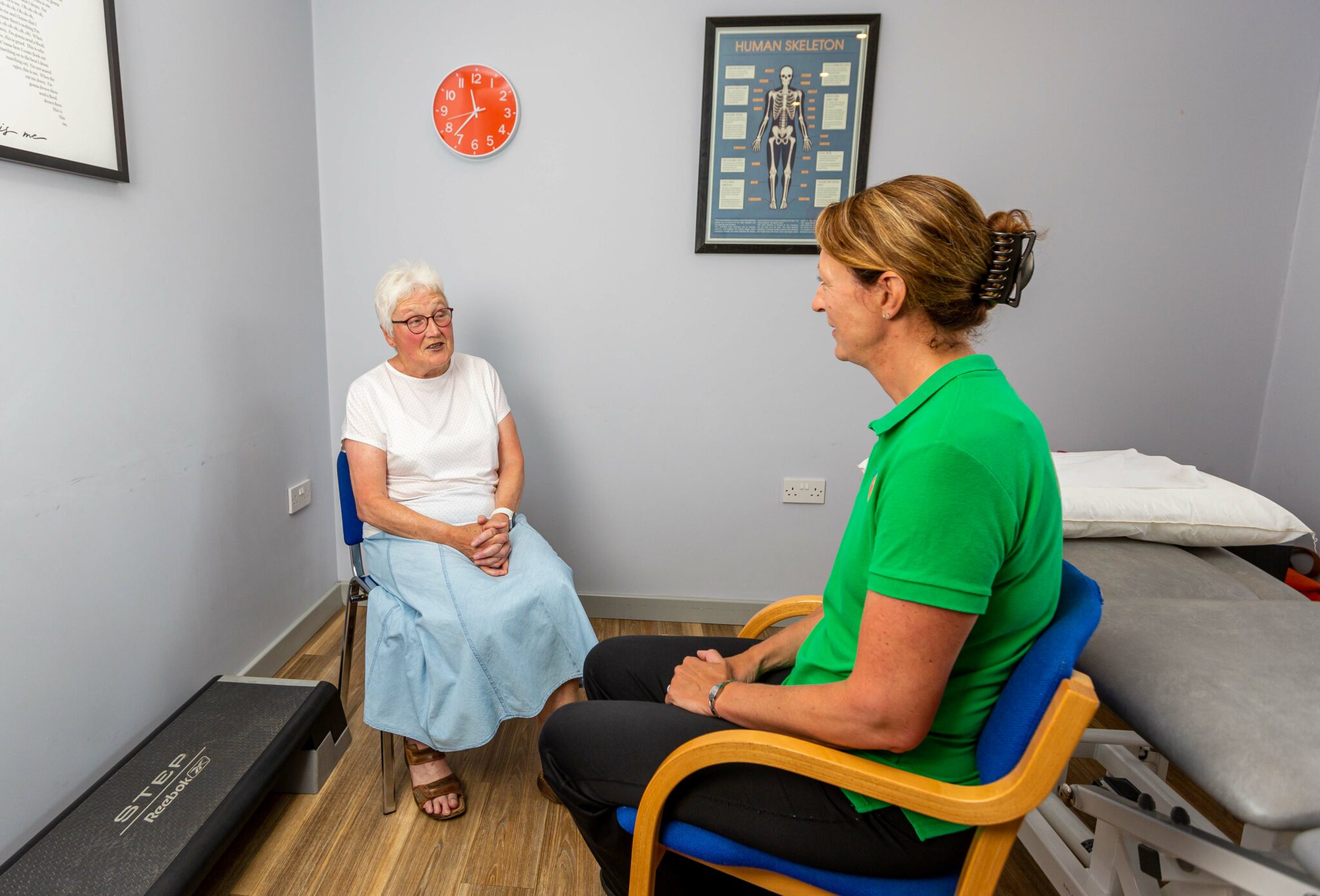So I sit here and write my first ever blog. A scary place in our digital age where one can be scrutinised by the world about the way you think and behave as a therapist. However, I have such passionate belief in our new holistic, multidimensional, evidence based route of healthcare that I want to share the journey of how Prestons Physiotherapy has now become Prestons Health.
I was lucky enough to be born into the world of healthcare, with my Father (and his twin), Grandfather, Dad’s cousin (and his wife) all being Chartered Physiotherapists before me (Yes, I am the 6th in my family!). My Father worked in Private Practice from a clinic next to the house so I was part of Prestons from a very young age. I watched, observed and learnt ways of facilitating the body’s own ability to heal itself (because, in my view, really that is what Physiotherapy is all about). Yes, the physiotherapy techniques are important of course, but I have watched these swop, change, and develop over time amongst a new generation of physiotherapists but the task at hand hasn’t changed at all.
I adored both my Grandmothers and was involved in caring for both of them during their end of life years: something that had a profound effect on me and how I relate to all my patients today. These years definitely helped me nurture a sense of what the “art” in healthcare really means.
My University degree took me to a whole new place in the world of physiotherapy. At the time, degree courses in Physiotherapy were relatively new and the Bachelor of Science element to the training echoed the drive of the profession to become scientifically evidence based. In lots of ways, this has been a massive step forward for the profession. It means that ineffective practices can be weeded out and more effective practices promoted. The problem at that point was that evidence was pretty scarce into why Physiotherapy worked (we knew it did, but that is not sufficient in the now evidence based physiotherapy sphere which demands robust, peer reviewed, scientific data). It meant that “evidence based physiotherapy” took some rather unfortunate directions with a whole wave of therapists getting on the bandwagon of some pretty isolated research. For example, we were encouraged to teach people to actively draw in their abdominals to help prevent and treat back pain; a completely unnatural concept which has now been widely discredited as actually potentially contributing to back pain rather than improving it.
The holistic and complementary therapies such as acupuncture, meditation and yoga have always interested me, particularly the way in which they focus on looking at all aspects of your life, rather than focusing in only on the symptoms. Modern understanding of pain and neuroscience has meant that the evidence base for looking at multidimensional factors that holistic therapies have always looked at in healthcare such as sleep, diet, early life experience , mental health including depression, stress levels, ability to relax, exercise behaviours and psychosocial factors (such as attitudes, beliefs and behaviours of the individual) are now gaining increasing credibility in the evidence based sphere as contributing to pain and other aspects of ill health. .
On a personal level, I was lucky enough to attend Helena Del Pino’s Yoga for Pregnancy classes (www.healingyoga.org.uk) during both of my pregnancies and she taught me the power of the breath in managing pain. Delivering my 10lb 8 little girl through the power of the breath and a bit of gas and air alone was an enlightening moment for me. I don’t do pain, I have always been scared of it, yet I embraced it that day and realised how the bridge of the breath between the mind and the body can be so empowering when managing pain.
Coming across and watching Professor Peter O’Sullivan work was another light bulb moment for me. He is a Physiotherapist with a background in manual therapy who has pioneered the Classification Based: Cognitive Functional Therapy approach in physiotherapy which is now utilising a very holistic (yet evidence based) approach to back pain (although it can be extended to treating all aspects of musculoskeletal pains). This approach champions a patient centred approach to care: utilising a whole skill set relevant to that individual’s pain story and experience. It works with the breath, looking at facilitating normal movement patterns, often changing the way you think and move with the pain as well as utilising our manual therapy skills if required. It also embraces and utilises mindfulness which is a form of meditation: wow, an approach embracing what the East have been doing for centuries.
I am lucky enough to have shared my professional journey with many therapists along the way. A special mention has to go to Sarah Duncton from Physioart in Birmingham (www.physioart.co.uk) , my study buddy from the University of Birmingham for the last 20 years, who has given me such confidence in launching Prestons Health as it is today. Shelley Franklin, Head of health and fitness at Oundle School, has also been a joy to work with and has helped me develop my movement analysis skills and the application of exercise therapy at the heart of everything that I do as a physiotherapist.
So here we are.
Prestons Health is our new name, reflecting that Physiotherapy will always be at our heart, but that we embrace other therapies that can help our patients with all aspects of their wellbeing (after all, that is what good health is all about).
Each member of our healthcare team of therapists has been specifically selected as having the same ethos, looking at a person holistically and ethically within an evidence based framework that balances the science with the art of patient experience. And as a result our patients are loving it! We have a Team of specialised Chartered Physiotherapists, Podiatrists, Sports Massage Practitioners, Acupuncturists, Mindfulness Practitioners and Yoga Therapists and will be looking to grow that over the next few years.
We will be regularly updating our blog so, if you are interested in evidence based ways to improve your health, please come along and enjoy the ride. We are so excited to share it with you.




Recent Comments